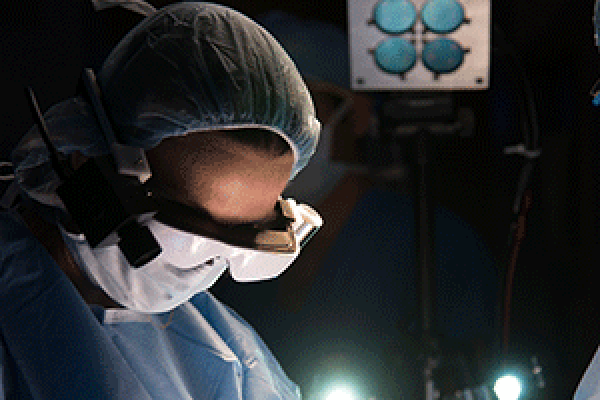WUSTL faculty receive Fulbright awards
Some WUSTL faculty members have received awards from the Fulbright Program for academic pursuits in areas ranging from architecture to education to medicine.
Olympics-themed Tread the Med to begin Feb. 27
Tread the Med, the School of Medicine’s popular 100-day wellness program that encourages participants to walk 10,000 steps each day, is set to begin Thursday, Feb. 27, with an Olympics-themed kickoff on the Medical Campus.
10th Annual Art Show
The School of Medicine’s 10th Annual Art Show, which features works by students, faculty and staff, is in the Farrell Learning and Teaching Center atrium through Friday, Feb. 21.
Smoking cessation may improve mental health
Although many health professionals who treat people with psychiatric problems overlook their patients’ smoking habits, new research at the School of Medicine shows that people who struggle with mood problems or addiction can safely quit smoking and that kicking the habit is associated with improved mental health.
Nanoparticles treat muscular dystrophy in mice
Researchers at the School of Medicine have demonstrated a new approach to treating muscular dystrophy. Mice with a form of the disease showed improved strength and heart function when treated with nanoparticles loaded with rapamycin, an immunosuppressive drug recently found to improve recycling of cellular waste.
WUSTL student helps FDA roll out campaign to curb youth tobacco use
Daniel Giuffra, a freshman and Annika Rodriguez Scholar at Washington University in St. Louis, discussed his anti-smoking work as part of a recent U.S. Food and Drug Administration news conference announcing a new effort to curb tobacco use among at-risk youth.
Washington People: Karen Seibert
Karen Seibert, PhD, research professor of pathology and immunology and of genetics, helps scientists connect and collaborate. Seibert, who does so with a mixture of warmth, optimism, enthusiasm and humor, is the director of Genomic Pathology Services at Washington University,
a groundbreaking service that simultaneously analyzes many different
genes to help patients and their doctors identify the best treatment
options.
Special glasses help surgeons ‘see’ cancer
High-tech glasses developed at the School of Medicine may help surgeons visualize cancer cells, which glow blue when viewed through the eyewear. The wearable technology was used during surgery for the first time Feb. 10 at Siteman Cancer Center.
Obituary: David M. Kipnis, MD, Distinguished University Professor Emeritus of Medicine, 86
David M. Kipnis, MD, Distinguished University Professor Emeritus of Medicine at Washington University School of Medicine in St. Louis, died at his home Wednesday, Feb. 5, 2014, after a long illness. He was 86.
Bierut named Alumni Endowed Professor of Psychiatry
Laura Jean Bierut, MD, has been named the Alumni Endowed Professor of Psychiatry at the School of Medicine. Her work focuses on the genetic and environmental influences that contribute to addiction and other psychiatric disorders.
Older Stories

